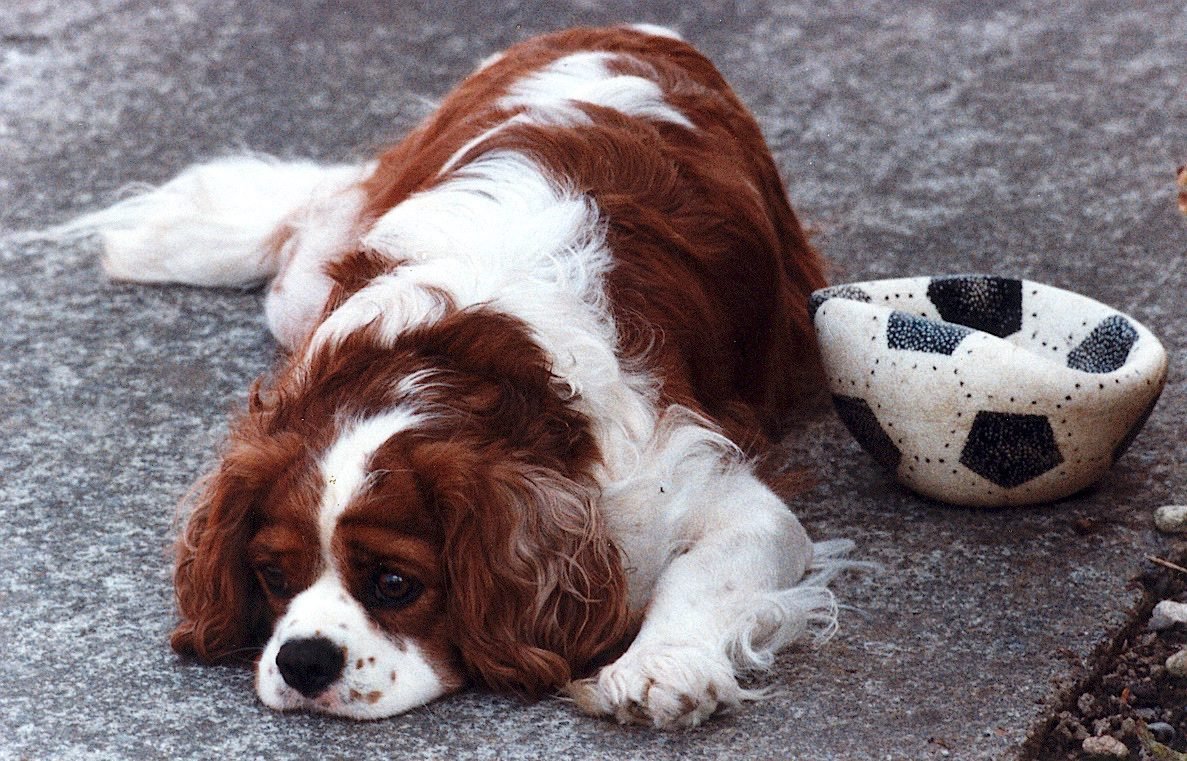After a lifetime of excited tail wags, faithful companionship, and memorable tricks, it is no wonder your senior dog is beginning to show their age. Maybe their hearing isn’t as good as it once was. Their muzzle may have grayed and their coat has begun to thin. They maybe slow to rise and not as spritely as they once were. Sadly, natural ageing can change appearances, decrease mobility, and dull the senses. But if your older dog’s personality has changed, they may be experiencing something much more serious than the passage of time. If your dog seems confused, distant, or lost, they may be showing signs of a severe thought processing problem known as Canine Cognitive Dysfunction, or CCD.
Cognitive Dysfunction Syndrome in Dogs
Canine Cognitive dysfunction is a condition related to the ageing of a dog’s brain, which creates pathological changes in the brain that slow the mental functioning of dogs resulting in loss of memory, motor function, and learned behaviours from training early in life. Although the initial symptoms of the disorder are mild, they gradually worsen over time. Surprisingly, clinical signs of CCD are found in half the population of dogs over the age of 11, and by the age of 15, nearly 70% of dogs display at least one sign.
Possible Signs of Canine Cognitive Dysfunction:
• Becomes lost in familiar places around the home or backyard
• Becomes trapped behind familiar furniture or in room corners
• Has trouble finding and using doors and negotiating stairways
• Does not respond to their name or familiar commands
• Is withdrawn and unwilling to play, go for walks, or even go outside
• Does not recognise or is startled by family members, toys, etc.
• Frequently trembles or shakes, either while standing or lying down
• Paces or wanders aimlessly throughout the house
• Has difficulty learning new tasks, commands, or routes
• Frequently soils in the house, regardless of the frequency they are taken outside
• Sleeps more during the day, less during the night
• Stares at walls or into space and is startled by interior lighting, the television, etc.
• Seeks less and less of your attention, praise, and play
• Is hesitant to take treats, drink fresh water, or eat fresh food
Causes
Although the exact cause of canine cognitive dysfunction is currently unknown, it is thought that genetic factors may predispose an animal to develop the condition. Past studies have shown that some older dogs with CCD have brain lesions similar to those that physicians see in Alzheimer’s patients. Similar to Alzheimer’s disease in humans, Canine Cognitive Dysfunction is caused by physical changes in the brain and its chemicals. The result of these changes is a deterioration of how your dog thinks, learns, and remembers, which causes behavioural changes.
Coping With Canine Cognitive Dysfunction An older dog who develops geriatric behaviour differences isn’t a rare occurrence. In the past, these symptoms were put down to senility or normal ageing and few treatment options were available. But continued scientific advances are changing both the views about, and treatment of Canine Cognitive Dysfunction. If you suspect your dog has CCD, make a special appointment or tell your veterinarian during one of the recommended twice-yearly visits for senior dogs. Many people simply do not mention their dog’s changed lifestyle, believing it is just ‘old age.’ But a combination of a number of the above symptoms are not normal to the ageing process and certain options are available to help treat or curb both this syndrome in its entirety and its individual components.
Many CCD symptoms are shared with other serious ailments. For instance, decreased activity could be a sign of advanced arthritis, inattentiveness could be a result of acute hearing or vision loss, and incontinence could stem from a serious urinary infection or kidney disease. But once your veterinarian has eliminated other conditions and has made a diagnosis of Canine Cognitive Dysfunction, together you can explore treatment options.
Treatment
Dogs with this canine cognitive dysfunction require life-long therapy and support. However, your help can make a world of difference when it comes to improving your dog’s cognitive functions. For example, although it will not ‘cure’ your dog, maintaining a healthy and stimulating environment will help in slowing the progression of ‘cognitive decline.’ This typically involves imposing a daily routine of exercise, play, and training.
In addition to medication and behavioural therapy, offering a special, balanced diet to improve the dog’s cognitive function; i.e., memory, learning ability, etc. may help. The diet should be supplemented with antioxidants, vitamin E and C, selenium, flavonoids, beta carotene, carotenoids, Omega-3, and carnitine – all considered excellent for improving the dog’s cognitive functions.
Try to keep your senior dog’s environment familiar and friendly:
• Try not to change, rearrange, or even refurbish furniture
• Eliminate clutter to create wide pathways through your house
• Consider purchasing or building a ramp for any stairways
• Know your dog’s limits when introducing new toys, food, people, or other animals
• Develop a routine feeding, watering, and walking schedule
• Keep commands short, simple, and compassionate
• Encourage gentle and involved, short play sessions
Most importantly, keep your patience and empathy. Your dog’s world has changed, but every effort should be made to show them that your love, respect, and pride of their past and present abilities has not changed and never will.
Note: It is highly recommended that a veterinarian be consulted before changing any of your senior dog’s exercise or feeding regimens.

